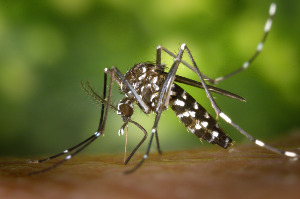
Mosquito repellent typically contains two main chemicals: DEET and picaridin. However, a recent discovery found that using bacteria is much more powerful in terms of ridding mosquitoes.
UW-Madison’s Department of Entomology dug further into bug spray’s ingredients. In a campus lab experiment, they noticed that two compounds from a bacterium on a worm kept the mosquito from feeding off of it, concluding that the bacteria has a stronger effect even though it requires a lesser amount of DEET and picaridin.
Que Lan started the project; she was a UW-Madison entomology professor who died from cancer in 2014. Lan mostly studied how the bacterium affected the mosquitoes. One of her trials involved killing the bug by placing the bacterium in its food source. “They wouldn’t touch it... That was fascinating because the adult female was somehow recognizing that it was not a good place for her to go,” Susan Paskewitz, chairwoman of UW-Madison’s Department of Entomology concluded.
This led to in-depth research conducted by Scientist Mayur Kajla, who compared the compounds between bacteria and chemicals. He tested how well the DEET and picaridin would discourage mosquitoes from feeding.
Bacteria fight off many mosquito species, along with diseases that some carry such as Zika and West Nile. Replacing the chemicals in mosquito repellent with bacteria will require the UW team to run animal studies and human trials.
[Source:
Madison.com
]

